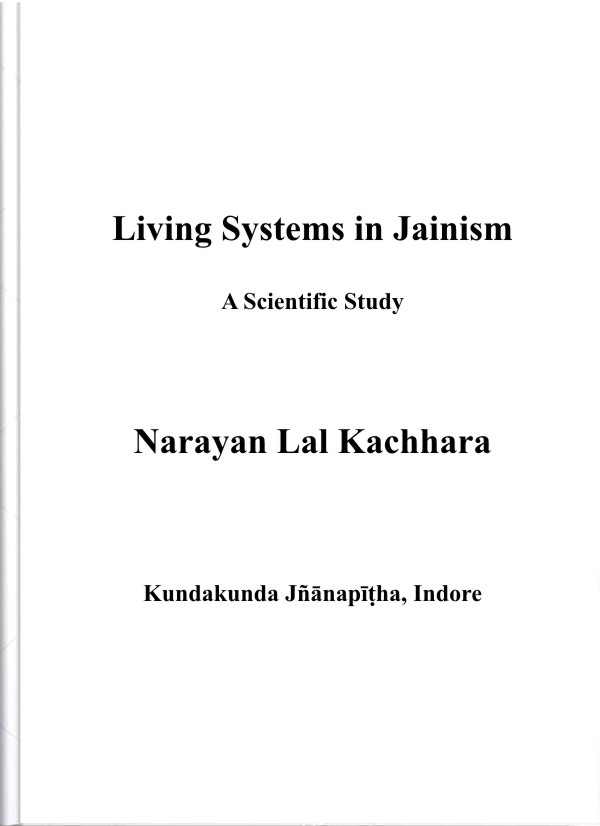The influx of karma is caused by the activities of the mind, body and speech and by the passions. Karma is broadly of two types: auspicious and inauspicious.
Auspicious karma that produces feelings of pleasure and the like is called merit (punya). The good act of offering food to monks is meritorious; similarly, the offering of drink, shelter, bed, clothes, meritorious thought, words and physical activities, and also homage (to the needy and deserving) are to be considered the nine kinds of merits. The binding of merit is exclusively due to good activity. A good activity, being a means to the attainment of emancipation, is of necessity dharma (penance). Merit is an incidental product that accompanies spiritual purity, exactly as chaff is an incidental product accompanying the kernel, which is the essential product of the seed. By this analogy, even a perverse person doing good activity earns merit and progresses on the path to emancipation. A mundane act unaccompanied by any kind of penance at its source cannot be considered an act of merit. On the other hand, even acts of physical self-torture by persons of perverted religious faiths can acquire merit, provided that they involve some kind of penance. This is supported by a description of child-penance (baalatapah) and its meritorious results in the Jaina canon. Some sort of restraint is a common feature of child-penance although it is done out of sheer ignorance and perverted knowledge.
Inauspicious karma is called demerit. Metaphorically, even those that are the causes are also designated by those terms; as such, inauspicious karma is of 18 kinds: injury to life, falsehood, stealing, sexual activity, possession, anger, pride, deceit, greed, attachment, hatred, quarrel, abuse, backbiting, censure, perverse indulgence in respect to non-restraint and restraint, deceitful-untruthfulness, and the thorn of perverted faith.
Acts of both merit and demerit bond karma. The state of the soul responsible for attracting the karmic matter is called asrava (influx), i.e., the cause of the bondage of karma. There are five types of influx: perversity, non-abstinence, remissness, passions and activity.
1. Perversity is mistaken faith that considers non-truth to be truth (due to the emergence of faith-deluding karma). Perversity is two-fold: deliberate and non-deliberate. Non-deliberate perversity is that which is found in the state of ignorance and the like.
2. Non-abstinence means non-renunciation of violent activities and the like.
3. Remissness (pramada) means the absence of vigor and enthusiasm in the soul in respect to spirituality.
4. Anger, pride, deceit and greed are the varieties of passion. Each of these varieties has four sub-varieties, according to the variation in intensity and duration as described above. The first entails an indefinite series of birth and rebirth. It affects the soul throughout its series of lives. The second is that which makes a man unfit for the pursuit of vows, even in a partial manner. The third prevents the cultivation of the totality of the vows. The fourth precludes the cultivation of the full course of ascetic life. Like a sudden blast of wind, it upsets even an ascetic who has succeeded in restraining himself from all sorts of sinful tendencies.
5. Activity means the operation of the body, organs of speech, and the mind. Activity can be auspicious, i.e. good actions, or inauspicious, i.e. bad actions.
The four types of inauspicious influx (perversity, non-abstinence, remissness, and passions) are the causes of demeritorious bondage. Such bondage takes place every moment. The application of the mind, speech, and body to perversity, violent activities, etc. is the external inauspicious operation that becomes the cause of demeritorious bondage, only at the time of operation. Wherever there is auspicious activity, there is, of necessity, the shedding of karma. Thus, auspicious activity has two causal functions: both the destruction and the bondage of karma.
The passions are produced by the action of deluding karma, which prevents the manifestation of the innate ability of the soul to believe in the truth and destroys the equanimity of the soul's conduct. This is the most detrimental karma, which obscures the real identity of the soul and produces the untruthful behavior and unscrupulous conduct typical of most humans and other beings. This is regarded as the king of all karmas; the karma bondage caused by it, either by itself or in association with other karmas, is always inauspicious. On its rise, deluding karma produces unpleasant, painful, stressful, and passionate experiences that again cause the bondage of similar karma, thereby perpetuating the cycle. Elimination of this karma is the most difficult task, and only rare individuals who have very strong willpower and determination can do it. Deluding karma is responsible for the duration and intensity of the bond, which varies according to the strength of the passion.
The two attributes of karma bonds (i.e. the numerical strength and nature of the karma) depend on the activities of the mind, body and speech. The karmas that are bonded by these activities can be either auspicious or inauspicious. On fruition, the auspicious karmas produce pleasant experiences, peace and happiness; the inauspicious karmas do just the opposite. The activities of the mind, body and speech are generally associated with some kind of passion, so in reality the bonded karma becomes an inauspicious type. Auspicious karmas bond only when one has control over the passions. All passions are attributes of the mind: therefore, the mind is the major contributor to karma bondage. Activities of the body (alone) can bind only short-term and low-intensity karma.
 Dr. N.L. Kachhara
Dr. N.L. Kachhara
